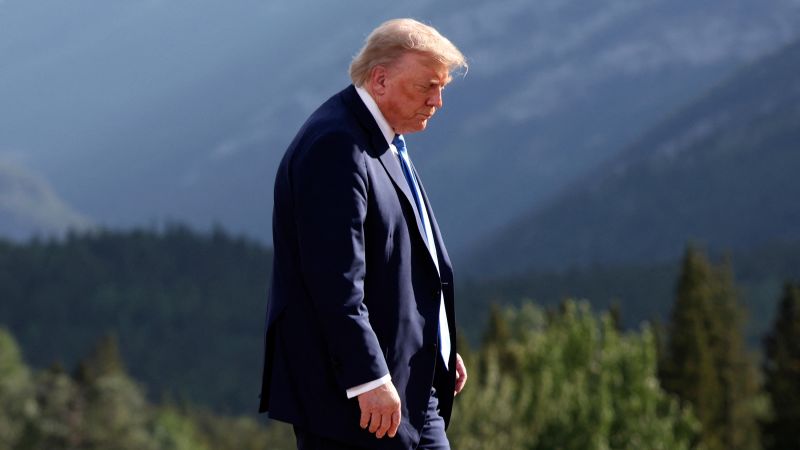President Trump’s decision to depart the G7 summit early amidst rising tensions between Israel and Iran led to a crucial phone call with Senator Lindsey Graham, a prominent national security advisor known for his hawkish views. During the call, Graham urged Trump to take decisive action to prevent Iran from acquiring nuclear weapons, emphasizing the need for military intervention if diplomatic efforts fail. This interaction highlights the internal dynamics within the GOP, with traditional Republicans like Graham advocating for a strong military stance, while key allies of Trump, such as Rep. Marjorie Taylor Greene, caution against intervention, aligning with Trump’s isolationist tendencies.
The debate over US involvement in the Iran-Israel conflict has intensified, with public and private lobbying efforts influencing Trump’s decision-making. Graham has publicly advocated for a military strike on a secretive Iranian nuclear site, a move that would require significant escalation and has reportedly gained traction with Trump. However, lawmakers, including Senator Tim Kaine and Rep. Thomas Massie, are introducing War Powers Resolutions to limit Trump’s authority to deploy military force without Congressional approval, reflecting concerns about unchecked executive power.
As Trump weighs his options, contrasting voices within the GOP, such as Senators Hawley and Paul, are engaging with him on the delicate issue of foreign intervention. While some Republicans support a restrained approach, others, like Graham, are pushing for a more assertive stance. The influence of these differing viewpoints on Trump’s decision-making process remains a focal point, as the President navigates complex pressures within his party and Congress regarding US military involvement in the Iran-Israel conflict.

